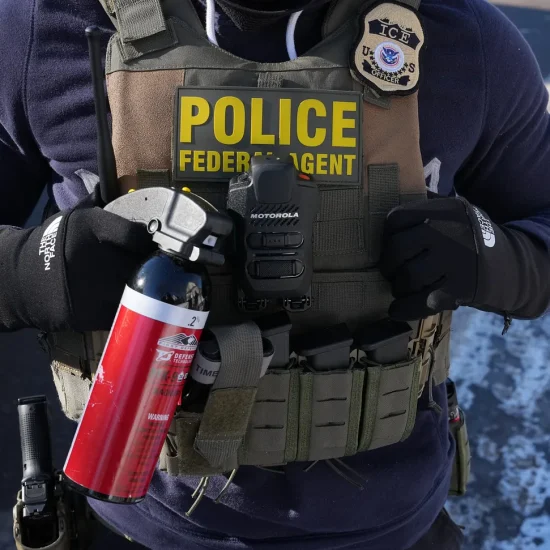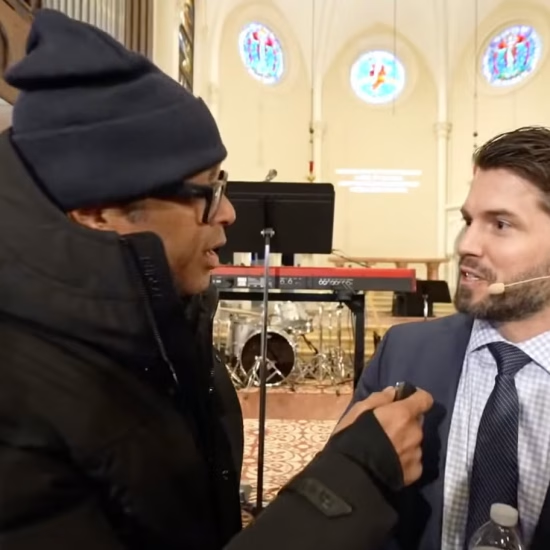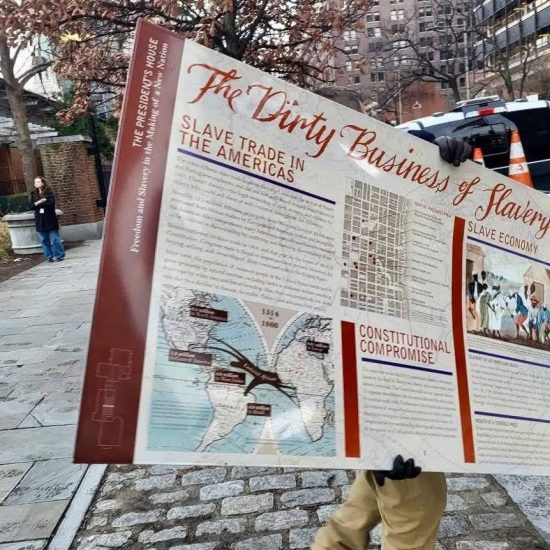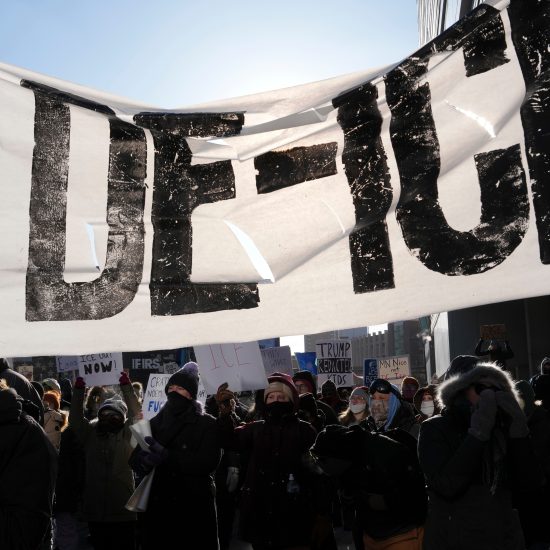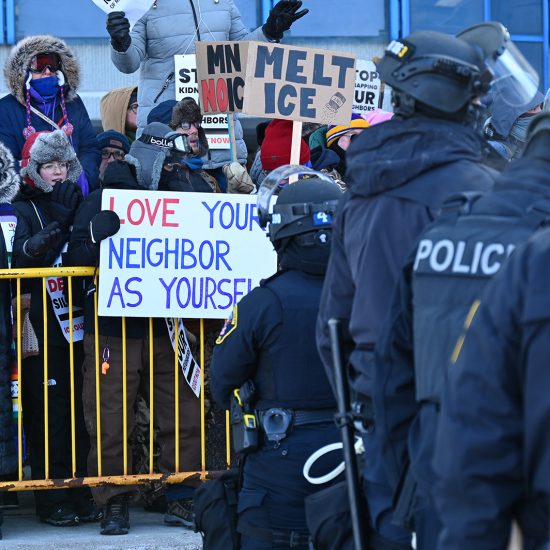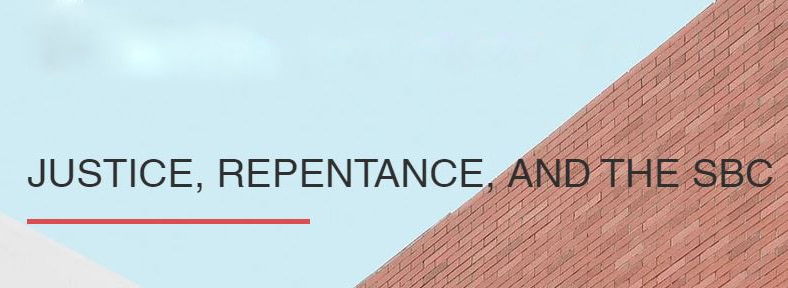
NASHVILLE (BP) — Citing “recent events [that] have left many brothers and sisters of color feeling betrayed and wondering if the [SBC] is committed to racial reconciliation,” a cross-ethnic group of Southern Baptists released a statement Friday (Dec. 18) titled “Justice, Repentance, and the SBC.”
The statement comes one week after another issued by the National African American Fellowship of the SBC and its president, Virginia pastor Marshal Ausberry, who also serves as SBC first vice president. That one came in response to a statement issued Nov. 30 by the Council of Seminary Presidents of the SBC reaffirming the Baptist Faith and Message while labeling Critical Race Theory and Intersectionality as “incompatible” with the BF&M.
 Friday’s statement was issued, its authors note, on the 155th anniversary of the Thirteenth Amendment, which abolished slavery and involuntary servitude.
Friday’s statement was issued, its authors note, on the 155th anniversary of the Thirteenth Amendment, which abolished slavery and involuntary servitude.
“We are all sinners in need of God’s grace, and as such, justice is something that tends to elude us,” it reads. “We often allow preconceptions and opinions to cloud our judgment. True justice is exemplified by hearts, lives, and actions staying in line with God’s vision for the world through the Gospel.”
The concept of injustice was present at the SBC’s founding, the statement says, with Southern slaveholders appointing and supporting missionaries.
“This historical reality is neither disputed, nor can it be ignored,” it adds.
At its 1995 annual meeting, the SBC issued a resolution on racial reconciliation, acknowledging the role of slavery in its founding. However, the “Justice, Repentance, and the SBC” statement warns of an undercurrent that nevertheless seeks to ignore the generational effects of that history. In addition, it calls into question the practice of purposely mislabeling Southern Baptists and their theology.
“We see attempts to downplay this historical reality. Many people deny the existence of systemic injustice as a reality. Many who recognize systemic injustices are labeled as ‘Marxists,’ ‘Liberals,’ and ‘Critical Race Theorists,’ even though they are theologically orthodox and believe in the total sufficiency of Scripture,” the statement reads. “While God desires us to continue growing in the area of racial justice, the actions of some in the SBC appear to be more concerned with political maneuvering than working to present a vibrant, gospel-loving, racially and culturally diverse vision. While some progress has occurred, some recent events have left many brothers and sisters of color feeling betrayed and wondering if the SBC is committed to racial reconciliation.”
Marshall Blalock, pastor of First Baptist Church of Charleston, S.C., said he signed the statement because of the need to listen closely to African American Southern Baptists regarding the current discussions over race.
“They love the Lord, believe the Bible is the inerrant Word of God, faithfully preach the Gospel, and are part of our SBC family,” Blalock said. “Half the battle is trying to get together on these critical issues and hear the heart and voices of those in our fellowship. The kingdom of God can bring unity, reconciliation, and hope across racial barriers.”
New Orleans pastor Page Brooks, an author of the document, told the Biblical Recorder of North Carolina that its release grew from the seminary presidents’ earlier statement as well as a growing concern over labels such as “Marxist” for those wanting to discuss race relations.
Other signatories of the “Justice, Repentance, and the SBC” statement include Fred Luter, former SBC president and senior pastor of Franklin Ave. Baptist Church in New Orleans, Louisiana; Ed Litton, pastor of Redemption Church in Saraland, Alabama; Dwight McKissic, senior pastor of Cornerstone Baptist Church in Arlington, Texas; and Alan Cross, pastor of Petaluma Valley Baptist Church in Petaluma, California.
SBC President J.D. Greear, in a post on his website, urged Southern Baptists to consider the message of today’s statement.
“The SBC was founded with the unjust and ungodly assumptions about race, and even though we have acknowledged and repudiated these injustices, we recognize sin, being a reproach to any people, leaves a long tail of destruction,” Greear wrote. “It corrupts our institutions and subtly shapes our perspectives in ways that deserve careful introspection and humble listening.”
Recognizing Critical Race Theory as connected to worldviews contrasting that of Southern Baptists,’ Greear stated there can be value in “questions raised and observations made.”
“These are things we can discuss openly and learn together,” he said. “As we do, we remain committed to judging all things by the Scriptures and bringing every thought captive to Christ. We must not default to labeling believers who parse certain questions differently ‘Marxist’ or ‘racist.’ This uncharitable spirit is not only intellectually lazy, it is a sin against the body of Christ.”
In response to the ongoing conversation, SBC Executive Committee President and CEO Ronnie Floyd has scheduled a meeting in early January with NAAF officers, the Council of Seminary Presidents, and Greear.

